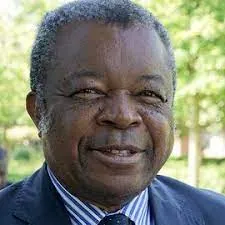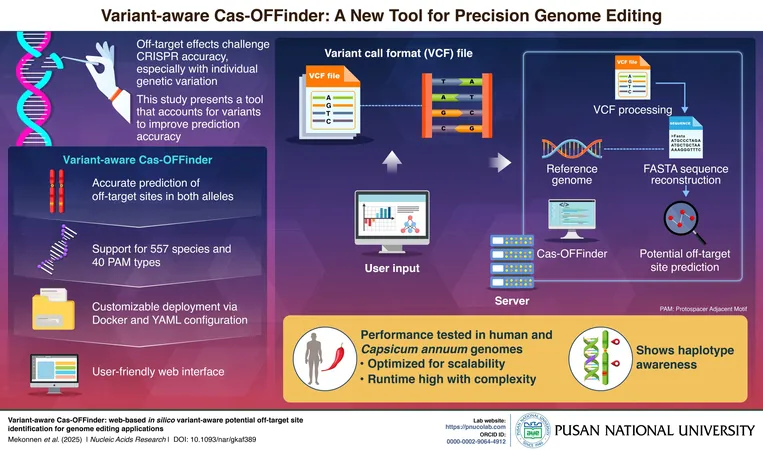
Groundbreaking Study Reveals Success of Ring Vaccination in Combating Ebola Outbreaks
2025-01-20
Author: John Tan
Groundbreaking Study Reveals Success of Ring Vaccination in Combating Ebola Outbreaks
A recent study conducted in the Democratic Republic of the Congo (DRC) has robustly affirmed the effectiveness of a targeted "ring vaccination" strategy in combating Ebola Virus Disease (EVD). This innovative approach, spearheaded by Dr. Jean-Jacques Muyembe, a prominent figure in the field and co-discoverer of the Ebola virus, has proven to be essential in controlling the spread of this deadly disease.
Dr. Muyembe expressed the numerous hurdles faced during the DRC campaign against EVD, emphasizing that vaccine hesitancy was a major challenge globally. "Misinformation, fear of external influences, and cultural barriers have fueled skepticism towards vaccination," he pointed out. To combat this issue, Dr. Muyembe's team collaborated closely with local healthcare workers, community leaders, and respected figures in the communities to disseminate accurate information about the vaccine’s safety and importance.
Critical Tasks in the Ring Vaccination Strategy
The study outlined four critical tasks carried out by the response teams, which ensured the effective implementation of the ring vaccination strategy:
1. **Defining the Ring**: The teams meticulously identified contacts and contacts-of-contacts from confirmed Ebola cases, utilizing data provided by the DRC Ministry of Health and WHO surveillance teams.
2. **Obtaining Informed Consent**: Efforts were made to ensure that every individual receiving the vaccine fully understood the procedure and potential benefits.
3. **Vaccine Administration**: The teams successfully delivered the vaccine to those identified within the risk ring.
4. **Safety Follow-Up**: Post-vaccination monitoring was essential to assess any adverse effects and overall effectiveness.
Dr. Muyembe highlighted the rigorous training that all team members underwent, which covered good clinical practices and standard operating procedures necessary for the ring vaccination method. Surveillance teams played a crucial role in identifying cases and tracing contacts, often with the indispensable support of the community.
Role of Military and Community Engagement
One notable aspect of the campaign was the role of military and UN peacekeeping forces in areas with security concerns. While they provided essential protection to the vaccination teams, they carefully refrained from direct interaction with the communities, thereby maintaining the trust of local health workers.
"The study reinforced the critical nature of prompt ring vaccination," Dr. Muyembe stated. He also shed light on the importance of early detection of Ebola symptoms, stating, "Accelerating case recognition is vital for the effectiveness of the ring vaccination strategy and the overall outbreak response."
Importance of Community Health Campaigns
To facilitate early detection and reporting, public health campaigns were launched to educate the communities about Ebola symptoms, thus encouraging prompt reporting of suspected cases. Community health workers emerged as key players in this effort, utilizing hotlines and other communication avenues to connect potential cases with response teams, significantly reducing the time taken to identify and isolate infected individuals.
Implications for Global Health Responses
The implications of this study extend beyond the current Ebola crisis; they highlight the necessity of community involvement, transparency, and prompt action in managing infectious disease outbreaks. As global health organizations continue to grapple with various epidemics, the lessons learned from this strategic approach to Ebola could pave the way for more effective public health responses worldwide.



 Brasil (PT)
Brasil (PT)
 Canada (EN)
Canada (EN)
 Chile (ES)
Chile (ES)
 Česko (CS)
Česko (CS)
 대한민국 (KO)
대한민국 (KO)
 España (ES)
España (ES)
 France (FR)
France (FR)
 Hong Kong (EN)
Hong Kong (EN)
 Italia (IT)
Italia (IT)
 日本 (JA)
日本 (JA)
 Magyarország (HU)
Magyarország (HU)
 Norge (NO)
Norge (NO)
 Polska (PL)
Polska (PL)
 Schweiz (DE)
Schweiz (DE)
 Singapore (EN)
Singapore (EN)
 Sverige (SV)
Sverige (SV)
 Suomi (FI)
Suomi (FI)
 Türkiye (TR)
Türkiye (TR)
 الإمارات العربية المتحدة (AR)
الإمارات العربية المتحدة (AR)